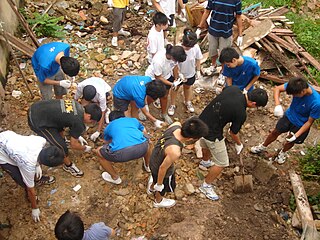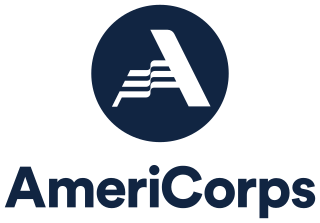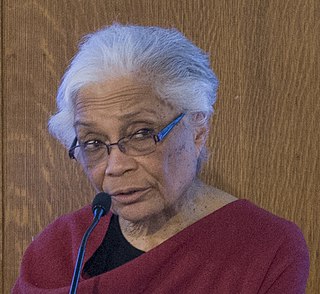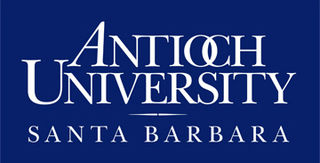Related Research Articles

Service-learning is an educational approach that uses community service to meet both classroom learning objectives and societal needs. It has been used with students of all grades and stages. Projects based in communities are designed to apply classroom learning to create positive change in the community and often involve community organisations. Recent studies have proven its use in citizen coexistence as a strategy to foster intercultural coexistence in local communities, which is essential for successfully implementing socio-educational interventions.

Citizen participation or public participation in social science refers to different mechanisms for the public to express opinions—and ideally exert influence—regarding political, economic, management or other social decisions. Participatory decision-making can take place along any realm of human social activity, including economic, political, management, cultural or familial.
The Arab Community Center for Economic and Social Services (ACCESS) is a human services organization committed to the development of the Arab American community. ACCESS helps low-income families, as well as newly arrived immigrants adapt to life in the United States. Its goal is to foster a greater understanding of Arab culture in the U.S. and in the Arab world. ACCESS provides social, mental health, educational, artistic, employment, legal, and medical services.
The United Nations defines community development as "a process where community members come together to take collective action and generate solutions to common problems." It is a broad concept, applied to the practices of civic leaders, activists, involved citizens, and professionals to improve various aspects of communities, typically aiming to build stronger and more resilient local communities.

Youth empowerment is a process where children and young people are encouraged to take charge of their lives. They do this by addressing their situation and then take action in order to improve their access to resources and transform their consciousness through their beliefs, values, and attitudes. Youth empowerment aims to improve quality of life. Youth empowerment is achieved through participation in youth empowerment programs. However scholars argue that children's rights implementation should go beyond learning about formal rights and procedures to give birth to a concrete experience of rights. There are numerous models that youth empowerment programs use that help youth achieve empowerment. A variety of youth empowerment initiatives are underway around the world. These programs can be through non-profit organizations, government organizations, schools or private organizations.

Youth voice refers to the distinct ideas, opinions, attitudes, knowledge, and actions of young people as a collective body. The term youth voice often groups together a diversity of perspectives and experiences, regardless of backgrounds, identities, and cultural differences. It is frequently associated with the successful application of a variety of youth development activities, including service learning, youth research, and leadership training. Additional research has shown that engaging youth voice is an essential element of effective organizational development among community and youth-serving organizations.

Participatory action research (PAR) is an approach to action research emphasizing participation and action by members of communities affected by that research. It seeks to understand the world by trying to change it, collaboratively and following reflection. PAR emphasizes collective inquiry and experimentation grounded in experience and social history. Within a PAR process, "communities of inquiry and action evolve and address questions and issues that are significant for those who participate as co-researchers". PAR contrasts with mainstream research methods, which emphasize controlled experimentation, statistical analysis, and reproducibility of findings.

Youth participation is the active engagement of young people throughout their own communities. It is often used as a shorthand for youth participation in any many forms, including decision-making, sports, schools and any activity where young people are not historically engaged.

Civic engagement or civic participation is any individual or group activity addressing issues of public concern. Civic engagement includes communities working together or individuals working alone in both political and non-political actions to protect public values or make a change in a community. The goal of civic engagement is to address public concerns and promote the quality of the community.

Student voice is the individual and collective perspective and actions of students within the context of learning and education. It is identified in schools as both a metaphorical practice and as a pragmatic concern. Tech educator Dennis Harper noted that student voice gives students "the ability to influence learning to include policies, programs, contexts and principles."

AmeriCorps is an independent agency of the United States government that engages more than five million Americans in service through a variety of stipended volunteer work programs in many sectors. These programs include AmeriCorps VISTA, AmeriCorps NCCC, AmeriCorps State and National, AmeriCorps Seniors, the Volunteer Generation Fund, and other national service initiatives. The agency's mission is "to improve lives, strengthen communities, and foster civic engagement through service and volunteering". It was created by the National and Community Service Trust Act of 1993. In September 2020, the agency rebranded itself as AmeriCorps, although its official name is unchanged.
Thomas Ehrlich is an American legal scholar. From 2000 to 2010 he was a Senior Scholar at the Carnegie Foundation for the Advancement of Teaching. He has previously served as president of Indiana University, provost of the University of Pennsylvania, and Dean of Stanford Law School. He was also the first president of the Legal Services Corporation in Washington, D.C., and the first director of the International Development Cooperation Agency, reporting to President Carter.
Youth philanthropy is the donation of time, energy or resources, including money, by children and youth towards philanthropic causes. According to one study, "youth philanthropy is, at the broadest level, youth giving of their time, talents and treasure." It is seen as an effective means in which youth develop knowledge of and participate in philanthropic projects such as volunteering, grant writing, and community service.
Youth engagement is the sentiment young people feel towards a particular person, activity, place or outcome. It has been a focus of youth development, public policy and social change movements for at least forty years. According to a Cornell University program, "Youth engagement is one of the buzzwords in the youth development field. Similar terms are youth voice, youth involvement, youth participation, and youth in governance."

Sharon Egretta Sutton, is an American architect, educator, visual artist, and author. Her work is focused on community-based participatory research and design. She is a professor emerita at the University of Washington. In 1984, she became the first African American woman to become a full professor in an accredited architectural degree program while teaching at the University of Michigan. She has also taught at Parsons School of Design, and Columbia University.

Antioch University Santa Barbara (AUSB) is a private liberal arts university in downtown Santa Barbara, California. It is part of the Antioch University system that includes campuses in Keene, New Hampshire; Seattle, Washington; Los Angeles, California; and Yellow Springs, Ohio, also home to Antioch College. Antioch University has operated in Santa Barbara since 1977.

The Edward M. Kennedy Serve America Act or Serve America Act was introduced in the United States House of Representatives on March 9, 2009, by Representative Carolyn McCarthy of New York. Originally titled the Generations Invigorating Volunteerism and Education Act, the bill reauthorizes and expands the AmeriCorps program that was first established in 1993. It passed in the House of Representatives on March 18, 2009. The U.S. Senate debated and approved an amended version of the bill on March 26, 2009, renaming it the Edward M. Kennedy Serve America Act, after Senator Ted Kennedy. The House of Representatives voted on the bill a second time, approving the amended version on March 31, 2009. It was signed by President Barack Obama on April 21, 2009.
Andrew Furco is an American scholar, researcher, and educator in the field of experiential education, whose work has focused primarily on advancing research in service learning. Service learning is an instructional approach whereby students participate in community service that is linked to their academic learning. Service learning has been adopted in K–12 schools, colleges, and universities in the United States, Canada and in countries throughout South America, Australia, Africa, Asia and Europe.
Action civics is a modern and alternative form of civics education in the United States. Action civics is an applied civic education process in which participants learn about government by examining issues in their own community and then select a focus issue for action through a process of debate, research the issue and learn advocacy strategies, develop civic skills such as public speaking, formulate a plan, mobilize, educate, then evaluate, and reflect on their experience. Participants' voices are encouraged, valued and incorporated. Participants learn by doing, with a focus on collective action. Action civics can encompass a number of different actions from community service to electoral engagement and from talking about concerns with public officials to creating peer education campaigns.
Bernd Reiter is a political scientist and professor at Texas Tech University. He formerly served as the Director of the Institute for The Study of Latin American and the Caribbean (ISLAC) and professor of political science for the School of Interdisciplinary Global Studies at the University of South Florida. His research focuses on democracy, race and decolonization. Reiter is a decolonization scholar and has collaborated with such authors as Arturo Escobar (anthropologist), Sandra Harding, Raewyn Connell, Catherine Walsh, Gustavo Esteva, Walter Mignolo, and Aram Ziai. He has also made contributions to Critical Whiteness Studies. In 2017, he gave a TEDx talk on The Crisis of Liberal Democracy and the Path Ahead.
References
- 1 2 3 (1994) "Faculty Awards Barry Checkoway Regents’ Award for Distinguished Service." University Record. 10/3/94. Retrieved 6/25/07.
- ↑ (nd) Advisory Board Archived June 25, 2007, at the Wayback Machine . American Association of Colleges and Universities. Retrieved 6/25/07.
- ↑ (nd) Profile: Barry Checkoway. University of Michigan School of Social Work. Retrieved 6/25/07.
- ↑ (1994) Best Feature Awards Archived April 14, 2007, at the Wayback Machine . APA. Retrieved 6/24/07.